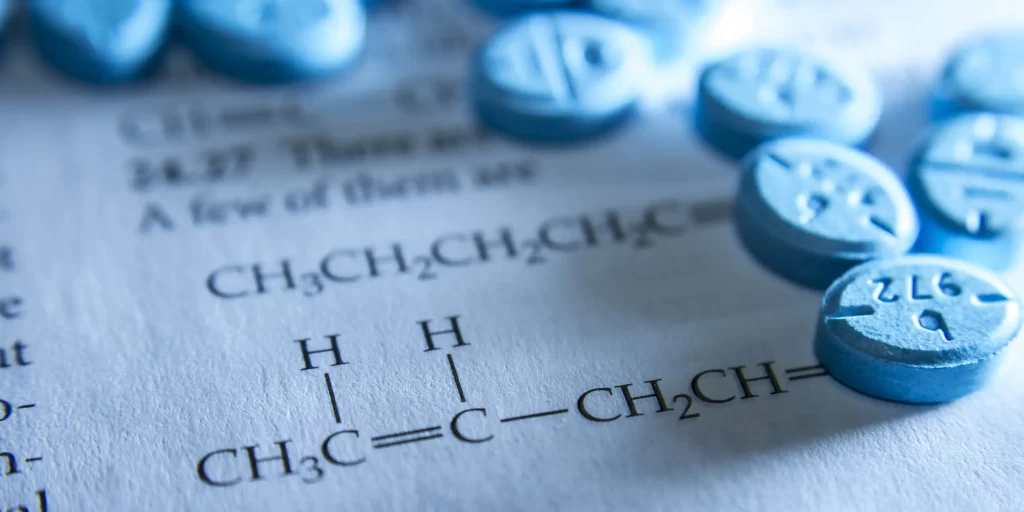Adderall Overdose: Signs, Symptoms, Dangers & Treatment
Written by Thomas Christiansen
& Medically Reviewed by Dr. Deep Shukla, PhD, MS
Medically Reviewed
Up to Date
Last Updated - 6/17/2022
View our editorial policy
Adderall is a stimulant that is commonly used for the treatment of attention-deficit/hyperactivity disorder (ADHD) and narcolepsy. Adderall consists of a combination of amphetamine and dextroamphetamine and is often misused because of its ability to increase concentration and other intellectual abilities. Adderall may also be used for its ability to produce a euphoric high. When used as prescribed, Adderall is generally safe, but misuse of the drug can lead to an overdose. An accidental overdose may also occur if individuals use other medications or illicit substances that interact with amphetamines and potentiate its toxic effects.
How Do Adderall Overdoses Occur?
Adderall acts by increasing the release of the neurotransmitters dopamine, norepinephrine and serotonin, and decreasing the reuptake of these neurotransmitters. During an overdose, excessive amounts of these neurotransmitters are released and result in excessive activation of the sympathetic nervous system (which is involved in the fight-or-flight response). Like many other psychostimulants, the amount of Adderall needed to overdose varies from person to person. Even low doses of Adderall may be sufficient to cause an overdose. The likelihood of an overdose is influenced by the age of the person, the dose used, frequency of use and the route of administration.
When prescription amphetamines, such as Adderall, are abused, they may be crushed, dissolved in water and injected. This abuse may result in a rapid increase in drug levels and can increase the likelihood of an overdose.
The doses prescribed for the treatment of ADHD and narcolepsy are generally very low and unlikely to cause an overdose. However, the interaction of therapeutic doses of prescription amphetamines with alcohol or other medications may produce toxic effects.
Signs and Symptoms of Adderall Overdose
The physical signs of Adderall overdose are mostly caused by the activation of the sympathetic nervous system by the action of norepinephrine. The psychological symptoms are mostly mediated by the increase in the levels of dopamine and serotonin.
Some of the common physical symptoms of an Adderall overdose include:
- Increased heart rate and blood pressure
- Chest pain
- Heart attack
- Fever or hyperthermia
- Excessive sweating
- Hypertension or breathing difficulties
- Dilated pupils
- Tremors
- Seizures
- Excessive movements and overactive reflexes
- Muscle pains
- Gastrointestinal problems including vomiting, nausea and diarrhea
Some of the psychological symptoms of an Adderall overdose include:
- Hallucinations
- Panic attacks
- Increased agitation and aggression
- Delirium
- Anxiety
- Paranoia
What Happens if You Overdose on Adderall?
The most common signs of Adderall overdose include sweating, increased heart rate, hypertension, dilated pupils, tremors, seizures and hyperthermia. Besides these physical symptoms, psychological signs such as agitation, confusion, anxiety and hallucinations are also often present. Although less common, more severe cases may involve a stroke, heart attack and other cardiovascular complications. These cardiovascular toxicities, besides other severe adverse effects such as respiratory failure or kidney failure, may even lead to death. Immediate medical attention can minimize the toxic effects produced due to an overdose. People should immediately call 911 if an Adderall overdose is suspected.
Dangers of Overdose
Overdosing on Adderall can be dangerous, and can cause various cardiovascular and neurological toxicities. Although there is limited evidence on the effects of an overdose caused by prescription amphetamines, an amphetamine overdose, in general, can result in cardiovascular and cerebrovascular complications including heart attack, chest pain, aortic dissection, cerebral hemorrhage and ischemic stroke.
Other potential dangerous effects include hyperthermia, seizures, respiratory failure and kidney failure. Seizures caused by Adderall overdoses may lead to damage to skeletal muscles and kidney failure.
Adderall Overdose Statistics
According to the 2017 National Survey on Drug Use and Health Report, around 1.8 million individuals over the age of 12 misused prescription stimulants during the month prior to the survey. Also, 0.2% of the individuals surveyed over the age of 12 had a stimulant use disorder in 2017.
In 2017, 10,333 deaths were caused by the use of psychostimulants including amphetamine (including Adderall), methamphetamine and Ritalin compared to 7,542 deaths in 2016. This statistic represented 14.7% of all deaths caused by drug overdose.
Adderall Overdose Treatment
Adderall overdose treatment mostly involves supportive care or management of the symptoms of overdose. Vital signs including heart rate, respiration, body temperature and blood glucose levels require constant monitoring. Many of the adverse effects of amphetamine overdose are due to the excessive activation of the sympathetic nervous system. Many of these symptoms involving cardiovascular toxicities, hypertension and seizures can be managed with the help of benzodiazepines.
Larger doses of benzodiazepines or antipsychotics may also be used for the treatment of symptoms of extreme agitation or delirium. Hyperthermia is generally treated with external cooling such as convection cooling that involves circulating tepid mist with a fan. Other symptoms may be treated similarly with medications and breathing support or intravenous fluids may be provided if necessary.
Always call 911 in the case of an Adderall overdose. Immediate medical attention can limit the harm of any dangerous effects.
Adderall Overdose Prevention
Adderall must only be used in the doses and the manner prescribed by a doctor to prevent an overdose. Besides increasing the risk of an overdose, using larger doses of Adderall may also lead to the development of an addiction to the drug. Besides the intake of a larger-than-prescribed dose, crushing extended-release prescription amphetamines may result in a rapid increase in the drug levels in the bloodstream. Therapeutic doses are generally low and only occasionally produce severe side effects. To avoid Adderall-induced toxicities, the intake of alcohol or other illicit substances must be avoided. Other medications should only be used as approved by a doctor.
If you or a loved one struggles with Adderall addiction, contact The Recovery Village Ridgefield to speak with a representative about how addiction treatment can help. Take the first step toward a healthier future, call today.
Sources
National Institute of Drug Abuse. “Prescription stimulants.” June 2018. Accessed August 2, 2019.
Mbabazi, Kariisa; School, Lawrence; Wilson, Nana; Puja, Seth; Hoots, Brooke. “Drug Overdose Deaths Involving Cocaine and Psychostimulants with Abuse Potential—United States, 2003–2017.” Morbidity and Mortality Weekly Report, May 2019. Accessed August 2, 2019.
Substance Abuse and Mental Health Services Administration. National Survey on Drug Use and Health 2017. September 2018. Accessed August 2, 2019.
Spiller, Henry; Hays, Hannah; Aleguas, Alfred. “Overdose of drugs for attention-deficit hyperactivity disorder: clinical presentation, mechanisms of toxicity, and management.” CNS Drugs, July 2013. Accessed August 2, 2019.
View Sources
National Institute of Drug Abuse. “Prescription stimulants.” June 2018. Accessed August 2, 2019.
Mbabazi, Kariisa; School, Lawrence; Wilson, Nana; Puja, Seth; Hoots, Brooke. “Drug Overdose Deaths Involving Cocaine and Psychostimulants with Abuse Potential—United States, 2003–2017.” Morbidity and Mortality Weekly Report, May 2019. Accessed August 2, 2019.
Substance Abuse and Mental Health Services Administration. National Survey on Drug Use and Health 2017. September 2018. Accessed August 2, 2019.
Spiller, Henry; Hays, Hannah; Aleguas, Alfred. “Overdose of drugs for attention-deficit hyperactivity disorder: clinical presentation, mechanisms of toxicity, and management.” CNS Drugs, July 2013. Accessed August 2, 2019.
Authorship






